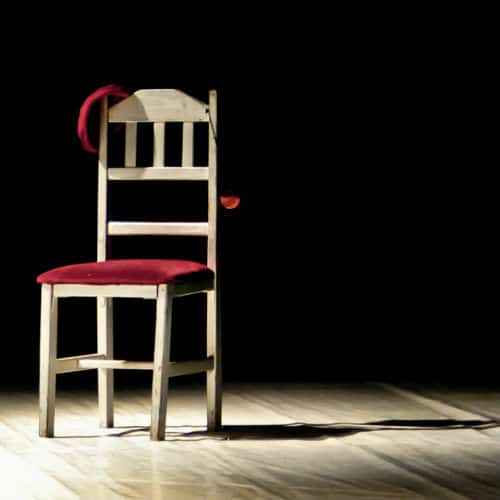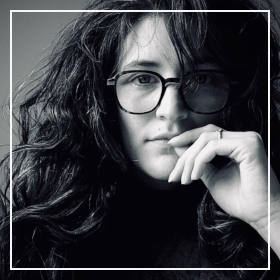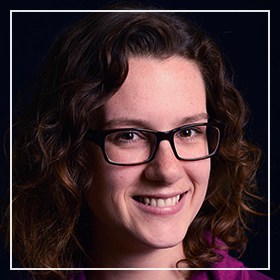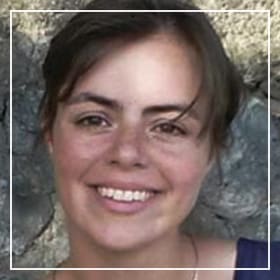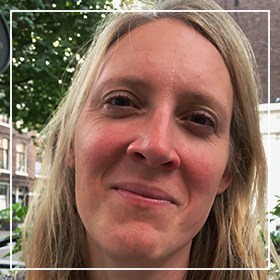Welcome to part two of this week’s ethnography slam, this time with contributions by Josien de Klerk, Annelieke Driessen, Susanne van den Buuse, and Sarita Fae Jarmack. Missed the previous posts? Here’s the introduction and the first part of the slam.
Unbounded Ethnography
by Josien de Klerk
The text you will find below is not written to be read. It was performed in an Ethnography Slam, together with eight other texts all around the theme of stillness. The Ethnography Slam was part of an invaluable workshop on Ethnographic writing organised by the Health, Care and the Body Programme Group of the Amsterdam Institute of Social Science Research at the University of Amsterdam in June 2016. Writing used to be something I did, struggled with and, occasionally, enjoyed. But after the discussions on the voice of a text, the delicate balance between spectacle and the mundane, and distinguishing between myself and being a narrator, I have come to view writing as a craft, a skill that can be practiced, something that you can experiment with like a painter does with colours and techniques. And I do experiment, practicing tone and voices in my writing; in articles, or little observations of everyday life. It is fun to think about performing texts, teach students to change writing styles in text, or to integrate videos in online texts (unfortunately the text below was not filmed):
there is an entire world of creative possibilities in writing and lecturing. That for me is the idea of ethnography as unbounded, to think beyond our normal ‘categories’ of output, and that is true invaluable lesson I picked up from the workshop.
My work on the aging body and generational care in Tanzania was already a mixture of writing and filming. The delicateness and slowness of moving in advanced old age renders itself extremely suitable for film: long shots in the edited product can capture the slowness of movement. The detail of skin and tendons from up close, the older person’s spirit contained in a look can capture strength and frailty at the same time. It is therefore that the text I wrote for the ethnography slam is a performance about ‘producing fieldwork’: how we filmed a 93-year old Tanzanian woman. In the text I try to capture in words the irony that we asked her to ‘move’ to show her ‘immobility’. Unbounded ethnography: a text about producing a film that I then use to teach students.
Before reading the text below, imagine a stage, a semi-dark theatre, a few lights directed at the stage and a group of eight researchers standing, saying nothing for a long time. Just standing, until the public starts to shift uncomfortably. After all, the theme of our group is stillness. Then imagine each researcher coming on stage one by one pausing, before performing their texts. When you read this text imagine silences, different tones of voice, volume-changes and gestures.
“Birds sing and rays of sun shine through the open door diffusing their light in the half-dark room. A wooden bench for visitors stands to the side of the entry-door leading to the back-room.
Its midday and quiet, her grown grandsons are out working. On the opposite wall a poster in English. ‘If you don’t love me now, don’t love me later.
A mattress lies near one side of the room, a girl, feverish is resting on it.
Close to her she sits, legs stretched out in front of her. The colourful cloth she is wearing falls off her shins, revealing wrinkled but shiny skin. The tendons in her arms stand out, she must be so strong.
I ask her to get up and to show how she is doing work on the land. It’s no problem for her, a radio-show already captured her long life-story; she a woman who lost her children, raised her grandchildren and still remembers the Germans.
She rises to the challenge, with a look of barely contained laughter. She slowly rolls on her knees, uses her stick as a lever and hand over hand over hand lifts herself. At 93, movement does not come easily.
She stands and walks, one foot after another, crossing the meters to the shamba nearby. There, she pauses, let’s herself fall down and starts weeding, meanwhile throwing jokes at a neighbour.
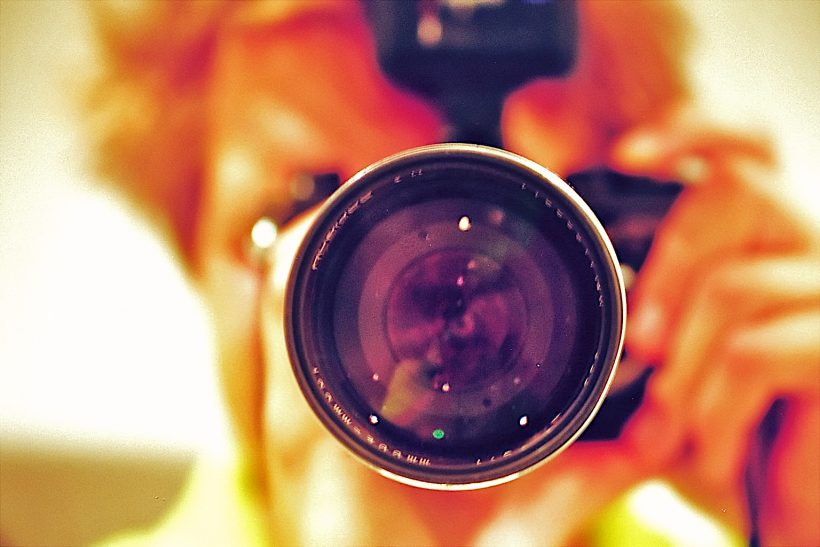
ZOOM to her hand, capturing its routinized movements
ZOOM to her calloused feet, the cracked soles used to walking barefoot.
And back to the house again, the same process. Ever so slowly she places her stick in front and starts lifting. Hand over hand, over hand, over hand, until she stands on her feet.
She shuffles back, bends down deep and enters the semi-dark room.
She leans to the wall and she gently drops down.
Her deep bellowing voice resonates in the house when she laughs and talks. Her face is still dark in the places where the thief hit her two weeks ago and she looks affectionately at the young grandson who came to her aide.
It is quiet inside, time has come to stop, now that we are done with the movement.
We continue to film.
Outside bicycles pass, chicken chuckle, her grandson plays soccer.
Dust particles dance in the sun, coming from the grass-covered floor. They are joined by the smoke from the stubble of cigarette she has just rolled from home-grown tobacco-leaves. She holds it between her long stiff fingers, and takes a deep drag.
Blowing out smoke she looks away, in obvious delight and then
… just
… rests.”
TRANSLATING DEMENTIA
by Annelieke Driessen
1.
You will read in my dissertation–
That I walked with ‘Ida Lichthart’ [1].
You will read in my dissertation–
That Ida told me that she was nervous, and that her husband had broken his own bicycle but was angry with her.
You will read in my dissertation–
That I did not understand her and yet tried to respond to what she said – first with questions, then with affirmative statements, wondering whether it was her or I who was incapable of understanding.
| 2. [2] | 3. |
| o “Buhhddddddd dat eee – eens zo ook. Ja ik…” | o “Buhhddddddd that aaa – once so too. Yes I…” |
| Ida walks the hallways. Her thin body wrapped in her night gown. About this, her daughter commented to me: my mother used to be ‘fuller’, to be heavier, now just a shadow of who she once was, she is now – in the words of her daughter – what she would have never wanted to be. The ‘incontinence pad’ as nurses call it, full, between her legs. She just got up. The psychologist had suggested not to wake her. To let her get up in her own pace. So she does. Then Ida walks. The care workers will soon walk with her, take her by her arm, lead her to one of the old-smelling bathrooms. Soothe her while she screams. Wash and change her.
But for now, Ida walks the hallways. She has taken my arm. Taking me along as if that is what was always supposed to happen. We walk towards a door. |
|
| – “Open, Openmaken?” | – “Open, Open up?” |
| o “Ik ben zo – ik ben zo zo, ik ben nou zo zenuwachtig van dit van.. h-hij mijn man die heb eigen.. maar hij heeft het meteen degeen die.. meteen.. ik word als…” | o “I am so – I am so so, I am really so nervous of this of… h-he my husband he have own… but he has it immediately the one who… immediately… I become as…” |
| I speak carefully: | |
| – (voorzichtig) “Zenuwachtig” | – “Nervous” |
| I use her words to affirm her affect. She continues: | |
| o “Maar hij had hh-het zelf – had hij zijn eigen fietss ssstukgaat – stukgemaakt op de…” | o “But he had it-tt by himself –he had his own bicycle breaks – broken on the…” |
| – “Stukgemaakt? Echt?” | – “Broken? Really?” |
| I repeat her words. | |
| o “JA! Vier.” | o “YES! Four.” |
| – “Vier?” | – “Four?” |
| o “Vier! Vier, maar ook ook dus bijna vier.” (pauze) “Nou eh …” | o “Four! Four, but also also so almost four.” (pause) “Well eh…” |
| And then she speaks clearly: | |
| o (helder:) “en toen was hij kwaad op mij en hij had het nog, nou komt het ook weer met een bak van binnen.” (pause) | o “and then he was angry with me and he still had it, now it comes again too with a bin from inside.” (pause |
| – “Hij was kwaad op u! Was hij kwaad op u?” | – “He was angry with you! Was he angry with you?” |
| o “JA! Ja ja. Maarja, meestal heb je ze dan omdat ze je dan staan bovenboord en zo. Ze zz… zeggen ze … tussen sowieso kan je … dat is zuuh schapen… ja dat zzz ze kan een beetje schaatsen met die honden. Beetje gek hè? | o “YES! Yes yes. But well, mostly you have them then because they stand you above board and so. They they ss… say… between anyhow you can… that is zuuuh sheep… yes that sss she can ice skate a bit with those dogs. A little crazy, right?” |
| She speaks softly: | |
| – (zacht:) “Ze kan een beetje schaatsen hè, ja!” | – “She can ice skate a little bit with those dogs. A little crazy, right? Yes!” |
| I move through the hallways by her side. She had grabbed my arm, taking me along on her seemingly never ending walks in the circuit of the hallways. She holds my arm still. Moves as if I am now a part of her. | |
| o “Ja, ja Ja.” | o “Yes, yes, yes.” |
4.
In my dissertation
You will not read Ida’s words as she spoke them
In my dissertation
You will read that I could not understand
In my dissertation
you will not read what I could not understand.
*****
The four parts of the slam stand, in reversed order, for translations that I (must) do in my research: translating practices in which I participated and observed into field notes (3), translating conversations into recordings (here I am aided by my voice recorder), translating transcriptions from Dutch to English (2), and translating these data into an argument (1).
The questions usually raised about these translations pertain to ethical concerns about informed consent in relation to recording conversations with people with dementia, accuracy of translation, the quality of field notes and analytical rigour respectively. In my slam, I tried to speak to these questions, while at the same time speaking to the impossibility of answering them.
The question of consent is indeed a thorny one, even if one believes, like I do, consent to be a process.
This consent, I would like to argue, is very well possible with people with dementia if the researcher relates to them with care. This begins with carefully designing the research, taking into account the vulnerabilities of the research participants; and requires attentiveness throughout fieldwork and writing. Striving for this consent, I tried to relate to Ms Lichthart by talking to her although I did not understand her, by repeating her words, by translating her words into text, her Dutch into English, her incomprehensible speech into my writing.
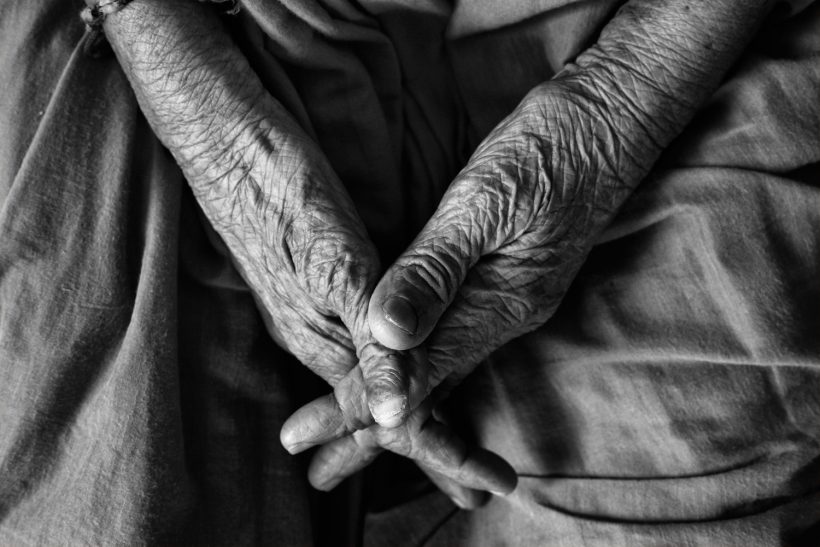
When taking this stance, recording conversations with respondents with dementia can be regarded as a way to engage with the politics of exclusion in academic writing: recording, transcribing and performing the voice of those who are now not understood, is itself an attempt to take them seriously, while neither projecting meaning onto them, nor showcasing them as ‘gibberish’. By including the recording with Ida’s voice, mediated by my recorder and the speakers, into my slam, I hoped to make her part of the academic conversation in which she would otherwise never be heard.
Doing an ‘accurate’ translation, or at least one that is true to what Ida said, is not easy either. Aware of difficulties of translating from one language to another in general, I found it to be sheer impossible to translate Ida’s and my conversation into English (let alone to perform it as if merely the language had changed!). Is ‘zuuuh’ a sound, or rather a word – ‘ze’ [she]? Or is it half a word maybe, like the start of ‘zussen’ [sisters] or maybe even a word that starts differently, like ‘zacht’ [soft]? And is ‘schapen’ (which translates as ‘sheep’) not a first attempt to say ‘schaatsen’ (‘ice skating’, the word that Ida says right after ‘schapen’), and would translating it as ‘sky skating’ be more ‘accurate’? By choosing ‘sheep’ as a translation, do I make Ida sound more incoherent than she seemed in Dutch?
Yet another translation took the form of my narration of the events. Translating practice into words cannot be done accurately – and yet I wrote the words. With my slam I hoped to problematise the ‘power’ I have over Ida’s wor(l)ds. This is reflected in my slam’s introduction and conclusion, which is once again devoid of voices out of order like Ida’s, which are nevertheless the reason and foundation of my writing.
In our group we took up the challenge to do something in the slam that we could not do in writing. And yet, here I am trying to write it.
In replacing the voice recording with the transcript much is lost: the sound of Ida’s voice, even if mediated by the recorder, the way it sounds, it trembles, it hesitates – none of this can be heard in the written text. But even so, doing this slam made me realise that the boundaries of academic writing can be pushed, as long as I remain aware of the translations embedded in the text, through which Ida’s and my conversation is altered again and again.
[1] Here I am using a pseudonym. In the safe space of the performed slam, I used Ida’s real name.
[2] When I performed the slam on stage, I stepped forward with every new layer of translation added to the text. Instead of the Dutch transcription of the recording used here (2), I played the original recording of Ida’s and my conversation to the group. I considered uploading the original recording here to be too sensitive in terms of research ethics, for Ida’s voice could be identified.
How I discovered the poet in me
by Susanne van den Buuse
How do you learn to write as an ethnographer? Of course, the answer is: you learn by doing. Yet, I have always felt a lack of guidelines, a starting point. What general rules or lessons can you hold in the back of your mind when writing? At the Ethnographic Writing workshop, me and a group of fellow PhD students finally got the guidelines we were longing for. Three renowned ethnographers Julie Livingston, Robert Desjarlais and Eileen Moyer were willing to share their writing tips and tricks with us. Not just in the much used lecture format, but mainly in working with us in small groups for an entire afternoon each. We wrote about a number that appeared in our research, we observed in busy places, and thought about our values in writing – what do we find important when we write? One of the most interesting exercises we had to do was thinking about the question: who are you as a narrator? This is not the same person as you in your daily life. How do you find out what kind of narrator is within you? Being familiar with an objective writing style resulting from my psychology background, I tried to play with a – to me totally unfamiliar – poetic, descriptive style. Below you see the result, written in less than one hour during the workshop and presented in our 5 minute presentations at the end of the week.
The beauty and richness of all the stories from our field and the ease with which we were able to come up with them, creatively written and presented with movement, sound and even play, was astonishing to me. This makes the workshop the best experience I have had in my PhD life so far.
“No more stillness
Still. Go to the dictionary. Look up the word still. It’s an adjective. Means: not moving or in motion. Also means: free from disturbance, agitation, or commotion. Sounds peaceful, doesn’t it? Sounds relieving. Relaxed. Free from disturbance. Not moving. Pausing.
The older you get, the more you are still. Your brain cells do not fire as many electric impulses. Your joints stiffen. You remain seated more. You move less. Eventually you surrender to your aging body, and to the hands of the nurses. They do the moving now, for you. Or rather, you move together. The nurse moves when you cannot. The nurse extends you.
But then, wouldn’t you like to do more by yourself? Wouldn’t that make you feel good? The nurse hands you the wash cloth, holding it with both hands so that the opening faces you. She gives you an encouraging smile. You feel the implicit request, implicit demand. You raise your arm slowly, reach out your hand, slide it into the wash cloth. It has been long since you held a wash cloth. It feels wet and soft. The nurse already put the soap on it. Slowly you start moving your hand and bring it to your face. You close your eyes.

The wash cloth touches your face and moves to your left cheek. In a circling motion you guide it over your left cheek, your mouth, right cheek. A drop of soapy water runs down your arm, which trembles as you fight the force of gravity, lying in your bed. The image of the nurse, nodding with encouragement, appears vaguely through your eye lids which you hold nearly closed against the soap. Your hand arrives all the way up at your forehead again. “Well done!” the nurse calls out. Tired from the exercise, your arm slides back on the bed sheet. It is still trembling. You sigh.
The nurse grabs the wash cloth again, rinses it, and removes the soap from your face. Three firm strokes. Dries your face with a towel. You blink a few times. Well, didn’t it feel good? To have washed your face again, after so many years?
The next morning, as you wake up, your arm hurts a little. Oh, but that will get better with practice! Don’t you worry. There is knocking on the door. The nurse enters before you can answer. As always. Good morning! She gives you a quick look with a smile. Moves hastily into your bathroom. Things being moved, running water. Are you ready to try some washing today?
No more stillness. Activity is what counts. Activity is good. No more stillness.”
Bridging distance: letter writing
by Sarita Fae Jarmack
It is always nerve-racking to perform at a panel, but I figure if I have followed the standards guided by those before me, tested amongst peers, and refined with the help of editors, surly not too much damage can be done reading all those blocks of words out loud. Academic papers have rules. They are formulated to conclude. They are structured into fact-packed and squared off paragraphs. As they generate currency, they have purpose, a destination. But a year into my PhD, I was wondering where is the space to explore the unconventional content, to experiment with unfinished content? Should I tuck it away for rainy Sunday mornings, pretending to separate it off from the process that goes into writing conference papers? As I am interested in blurring these boundaries, I took this ethnography slam as a space to do so. Under a group topic Dialogue, I shared about a fun habit of mine during fieldwork: letter writing. In some small way, through my practice I hope to continue experimenting with challenging this panel reading tradition.
———————————————————————————————————–
…and for those days when writing just doesn’t seem so fun, making a recording of work is a nice alternative.
Sliding my hand across the paper in micro movements, my muscles contract with each hand-written letter. Can you see my hesitations between the words or the smudged trails of ink on the ends of sentences? I sulk in my horrendous spelling with scribbles here and there and purposely shmooshed together letters to hide my lack of commitment to awkward words. Pausing to warm my hands on the coffee cup, I set it down leaving a ring – a signature of its own on the papers of my life. The candles dance on the table while the hum of chatter and coffeehouse music plays in the background. My fingertips touch the corners of each paper, letting the sharp edge crease my skin.
Pulled from my core and spewed out as a canvas of thought, my hands slowly breathe life into my affection for those of whom the letters are received by. I meditate on your existence as I write. An extension of my being, bridging space and time with those at a distance. This letter is a place for others to mingle between the crevasses of my brain, the intimate contradictory thoughts of which my daily shortcomings are made of. I wish for it to be a dialogue of play between the realities in which you and I live amongst.
Those letters, with their unique fold, penmanship, smell, and touch; They go beyond the impact of which any email or text could possibly hold. They are tangible and travel with me, a piece of you and thus a piece of me in return, saved for years, left as windows into our lives and sealed with our own spit.
Featured image by Hernán Piñera (flickr, CC BY-SA 2.0)

